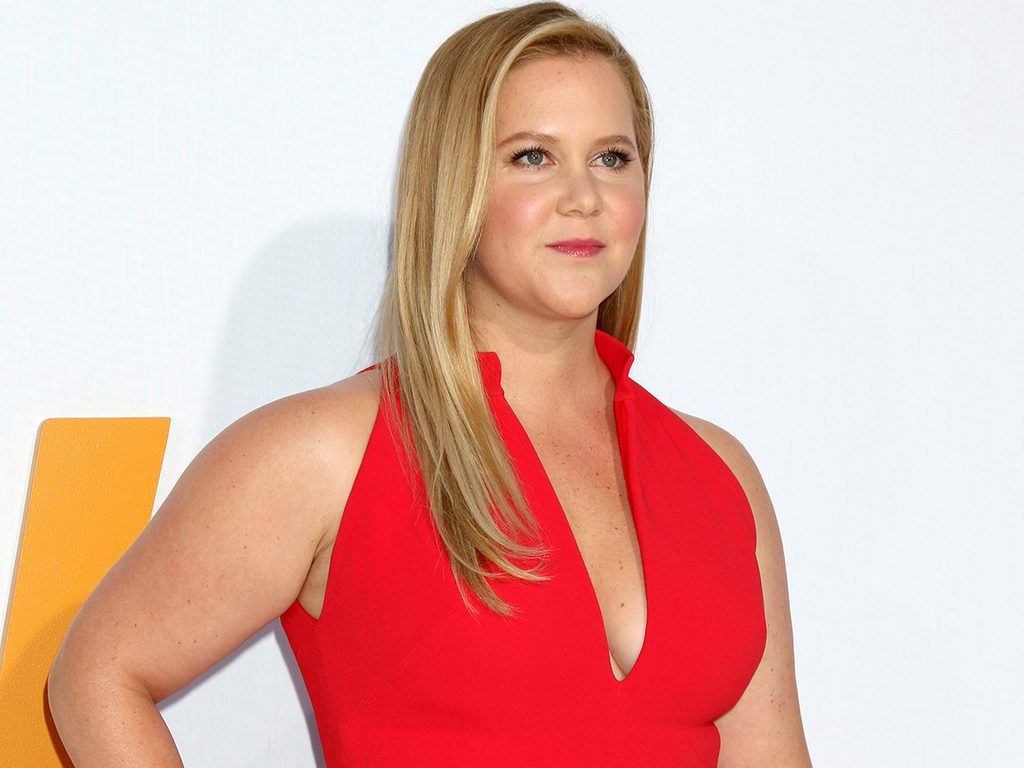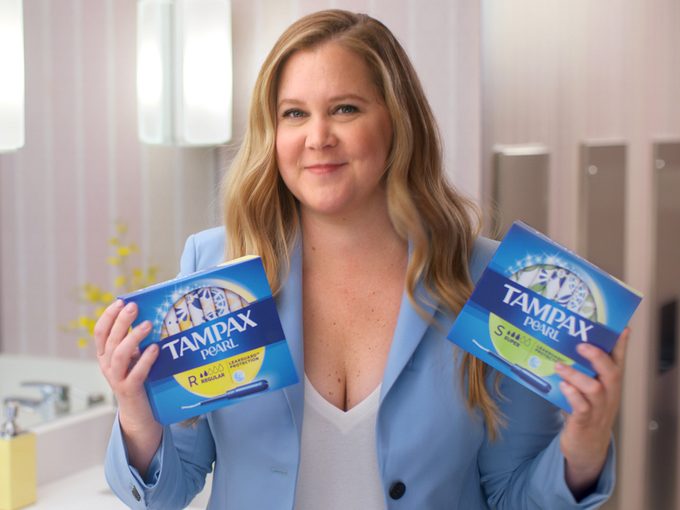Amy Schumer Wants to Talk About Your Period

The comedian shares why she wants to end the stigma around period talk and what happens when her husband asks if she has PMS.
Who told you what you needed to know about your period? For some people, the answer is their mom. For others, maybe the answer is a friend, or an older sister, or … Amy Schumer?
That’s the comedian’s hope, anyway — one she’s determined to see through by partnering with Tampax and bringing her trademark, no-holds-barred humour to the topic of periods.
“My mom was really vocal about her period, and it made me feel empowered to do the same thing, so I’ve never been embarrassed about it,” Schumer says over the phone. But even her mom left some important facts on the sidelines. “She was such a pad advocate,” Schumer remembers, partly because of the myths that surrounded tampon use. “She didn’t tell me there was an alternative.” When a friend’s older sister told Schumer about tampons, “I was like, um, what? . . . Mom, there’s another option?!”
Through a series of videos, Schumer aims to educate young girls, women and men about periods and destigmatize every aspect of period talk — all in her very Amy Schumer way (“It’s come to my attention,” one video begins, “that I have a vagina, that I know very little about.”)
This isn’t the first time Schumer has pulled back the curtain on matters of women’s health. She’s talked openly about her struggles with endometriosis, infertility and suffering through hyperemesis gravidarum (a condition that causes extreme nausea and vomiting) while pregnant with her son, Gene.
Best Health talked with Schumer about her hopes for the Tampax campaign, what she plans to teach her son about periods, and what happens when her husband asks if she has PMS.

On the stigma that still exists around periods
“I think it’s because we are still such a patriarchal society. It’s been men at the helm of everything for so long. I found out that Tampax was the first brand that could say the word ‘period’ on television in the 80s…It’s the most natural, awful thing that happens to us every month, and we should be allowed to talk about it—and complain about it.”
On education
“[As young girls] we weren’t educated about [periods] at all, so just having open conversations about it will hopefully push us in the right direction. Now that I’m thinking about it… in the vein of just sex education in general— [we also need to educate people on] sexual pleasure. There are women in their 80s who have never had an orgasm and that’s because of the same stigmas that surround [sexual health]. And I think it’s really on us to unload these conversations.”
On what she’ll tell her son about menstruation
“I think I’ll be really honest with him, probably at too early of an age…I have endometriosis, so my periods are really painful and heavy. My mom had really heavy periods and she would openly complain about it. And so I feel with women, their minds and their bodies are so taxed —I will definitely be sharing that with him, probably a couple years too early. I’m going to raise him to be a really good little feminist.”
On what she wishes she knew about reproductive health when she was younger
“I don’t think I had ever even heard about endometriosis until I was like 35. From sixth grade, I was in the nurse’s office once a month vomiting from the pain. Now, women are hopefully a little more informed.”
On the pervasive myth that everyone who used a tampon was going to get Toxic Shock Syndrome
“I have to think it was another patriarchal thing. Like men were afraid if women wore tampons that they would rule the world or something. [Now] I am completely making up, but it’s like, why were we all made to be so afraid of this thing that happens to next to no one?”
On dealing with PMS (and what happens when her husband asks if she has it)
“PMS is very real and it’s not something to be ashamed about. The only thing that’s funny about it, is how true it is. We get bad PMS. It’s a chemical altering of our brains. What’s so annoying about it, is when my husband says, ‘is this PMS?’ I get so mad because it is, and it’s completely out of my control. So I think it’s really noble what Tampax is doing, which is trying to give us a little more control of the narrative of our periods.”
Next, learn about Meghan Markle speaking out on period stigma.




